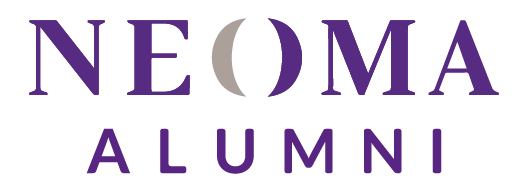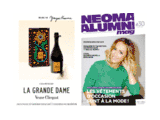The health crisis and successive confinements have forced most companies to adapt to this new situation. Some have even changed their business model, changing their targets, products or distribution methods. But is this "reinvention" sustainable?
Five entrepreneurs testify
Covid has reinforced a twofold conviction already widely shared, in "normal times", by business leaders: digitalisation and agility will be increasingly essential in the future if they want to see their business grow and become more attractive. But all are happy, on a personal and societal level of course, but also professionally, to see the end of the tunnel. If the health crisis has increased their capacity to adapt tenfold, they are emerging armed with more solid business models, sometimes hybrids between the "before and after", sometimes with an additional component, but never rotated 180°.
BULKEE-SHOP REDUCES CUSTOMER EFFORT
Safir Hanafi (MSc IPD 15) is manager of the incubator and accelerator at NEOMA Business School. As such, he has followed with great interest the adaptation of start-ups born in this entrepreneurial melting pot. Bulkee-shop.com, an online grocery shop created by Vincent Rouxel (BRM ECAL 20) and Dimitri Le Hénaff (BRM ECAL 20), two students from the NEOMA campus in Rouen, seems to him to be emblematic of "the reduction of customer effort that has already been at work for many years in the seller-buyer relationship. Originally, Bulkee played the card of zero waste and locavorism, which are of growing interest to consumers. The start-up sources fresh produce, selected within a radius of a few dozen kilometres, and offers it in bulk at collection points near its customers. They have done their shopping online before, browsing the virtual shelves of the Bulkee platform. But because of the need for containment, rapid home delivery to customers with reduced mobility - remember: one kilometre around their home at the height of the restrictions - will become the rule. Respectful of distances and barrier gestures, the deliveryman leaves the order, previously paid for online, on the doorstep, waits for the customer to pick it up and exchanges a little sign with him to make sure that it is in order before leaving. "Not forgetting to forge this link, however tenuous, with the consumer is essential", emphasises Safir, who points out that Carrefour launched "Blabla-caisses" at the beginning of the year in more than a hundred of its hypermarkets, where the company's employees take the time to talk to people who wish to do so, recreating proximity. This is an innovation that appeals to many consumers who are isolated during the Covid period.
by Patrice Theillout
Discover the rest of this dossier in the digital version, completely free!
Did you like this article? So that we can continue to offer you content on NEOMA and its news, contribute to NEOMA Alumni!

Comments0
Please log in to see or add a comment
Suggested Articles





